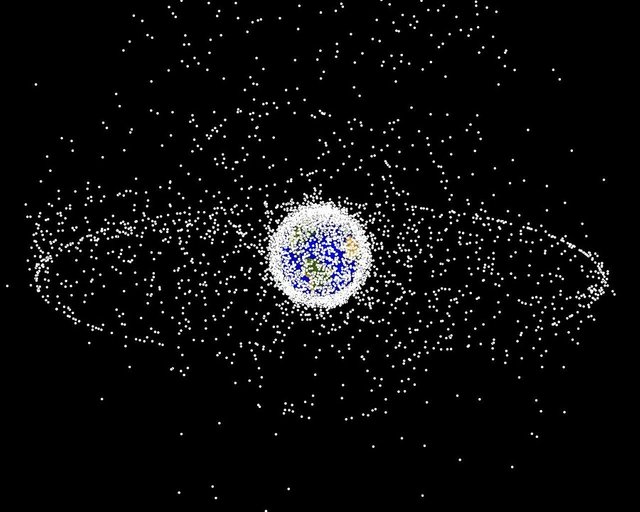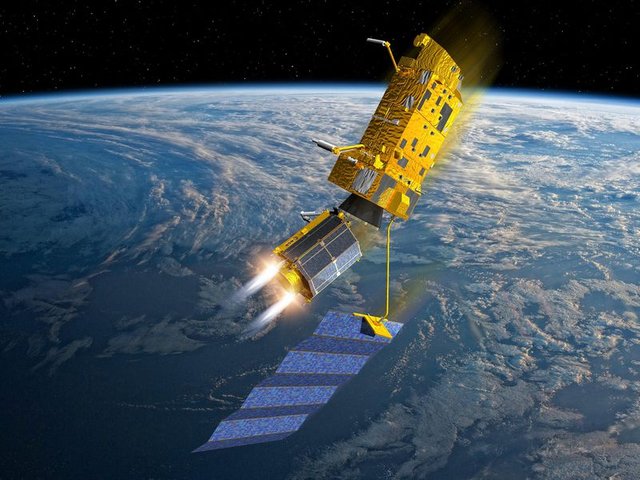According to the U.N. Office for Outer Space Affairs, there are 4,635 satellites currently orbiting the earth.
And you would be surprised how often pieces of them fall out of the sky.
"Space Junk"is the term used for tiny pieces of rockets and satellites that surround the earth.And there is a lot of it, nearly 3,000 tons to be exact.

While most of it is fairly small, an estimated 29,000 bits are larger than 10 centimeters in diameter; which is about size of a baseball.
Exactly how dangerous is space junk?
Debris can damage or destroy vital active satellites. A piece of space debris can strike an object with the force of a hand grenade. This could create more space junk and could cause a chain reaction of collisions.
For example, returned pieces the Hubble Space Telescope show many orbital debris impacts.
This debris can also make its way to earth. Like in November 2017, when a piece of a spacecraft fell to earth over Saskatchewan, Canada. Witnesses saw a fireball as the Antares Rocket Body burned up on its way back to earth.
In 1997, a woman named Lottie Williams was hit by a piece of rocket. Thus she became the only known person to have been hit by space junk.
Despite the fact how crowded it is up there, countries continue to launch satellites into orbit. The clean up of a space junk is made more complicated because of the idea of ownership. For instance, no nation other than the U.S. is allowed to touch a U.S. Satellite. This has forced some experts to suggest an agreed upon treaty outlining rights to uncontrollable objects in space.

European Space Agency(E.S.A) is leading the charge in space junk removal with mission called E.Deorbit. It will target dead E.S.A. owned satellites in low orbit. The satellite will be captured and brought down to burn up in the atmosphere. This mission is set to commence in 2023.
There are also other proposals to clean up space junk which include powerful lasers to track and potentially destroy the debris. There is as well a giant net-like device, which Japan's space agency is developing to capture this junk.
References: 1 2
Thank you for this excellent post. I listened to a related podcast recently. This is a very serious issue. Outside the dangers of falling pieces and potential damages to satellites, there is also the possibility to get "trapped on earth". There very frequent (hundreds daily) collisions between debris and even with satellites and these collisions create more debris. If we were to continue increasing the number of objects in orbit, we would get to a point where they would create a very tight net around the globe preventing to get through it, thus trapping us on the planet.
Downvoting a post can decrease pending rewards and make it less visible. Common reasons:
Submit
Salam Bro @munawar1235,
great informations in this topic about satellite Science. Thanks for updates.
Good work and Stay Blessed.
Downvoting a post can decrease pending rewards and make it less visible. Common reasons:
Submit
Yes space junk may cause a lot of problems as those junk cannot be brought back hope some new invention is made for this serious problem otherwise our solar system might get affected .....thanks for valuable information @munawar1235
Downvoting a post can decrease pending rewards and make it less visible. Common reasons:
Submit